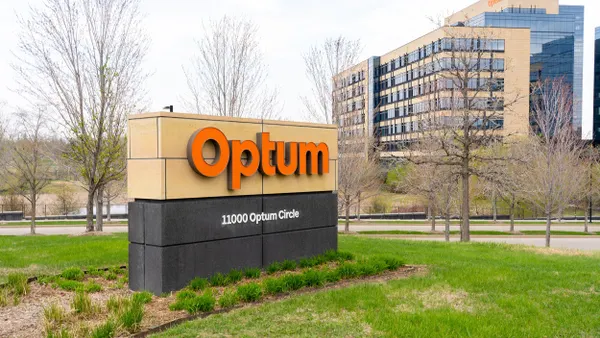Dive Brief:
- CVS Health is discontinuing certain infusion services offered through its Coram business and also plans to close or sell 29 pharmacies in the coming months, a spokesperson confirmed to Healthcare Dive.
- The retail giant stopped accepting new patients for its antibiotics, inotropic medications, total parenteral nutrition and acute home infusion therapies programs last week. Coram will continue to provide infusion services for specialty medications and enteral nutrition.
- CVS Health may conduct layoffs as part of the reduction in services. Impacted employees would be notified in mid-November and terminated in the new year, according to the spokesperson. Any workforce reductions are separate from CVS Health’s announcement last month that it would lay off 2,900 employees.
Dive Insight:
CVS Health entered the infusion space in 2014, when it purchased Coram for $2.1 billion. The retailer is now one of the top three national providers of infusion services by revenue, according to an August report from financial services firm Bourne Partners.
Prior to Thursday’s announcement, CVS Health captured approximately 15% of the infusion services market, and Bourne estimated that Coram generated an approximate $3.8 billion in annual revenue.
More than 3.2 million Americans receive some type of infusion therapy each year, according to Bourne’s research. The figure is expected to grow over the upcoming years, as the population over 65 years old is projected to double in the next three decades, chronic disease continues to rise and the Food and Drug Administration green-lights new injection-based drugs.
Still, infusion services providers have faced steady headwinds over the past two years, challenging the profitability of the venture.
Nationwide nursing labor shortages have hit the infusion industry hard because infusion therapy can require a 1-to-1 nurse-to-patient ratio and must be performed by nurses with specialized training, according to Bourne Partners.
Training requirements can push compensation for infusion nurses up 10% to 20% higher than nonspecialized nurses, the consultancy said, straining provider budgets.
In 2022, CVS Health closed 36 of its 71 Coram clinics and laid off 2,000 employees including dietitians, nurses and pharmacists. A KFF News report attributed the closure to high overhead costs associated with providing infusion services, labor costs, reimbursement delays and supply shortages.
“Providers of infused medications have continued to face a challenging environment for their most highly specialized, complex services, and Coram has not been immune to these challenges,” a CVS spokesperson said about the most recent closures. “As such, we have reevaluated our service offerings.”
Last month, CVS Health said it would layoff 2,900 employees amid a multibillion dollar cost saving initiative. The company may be exploring breaking up its insurance and retail businesses, according to media reports.













